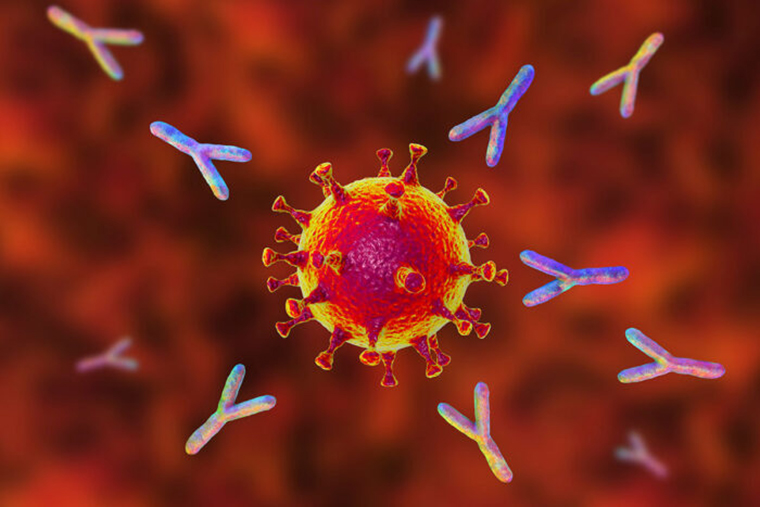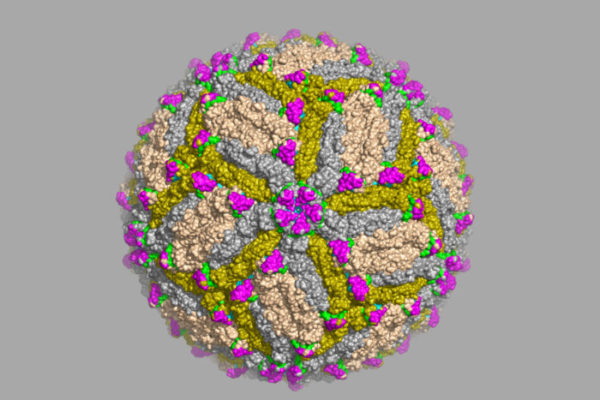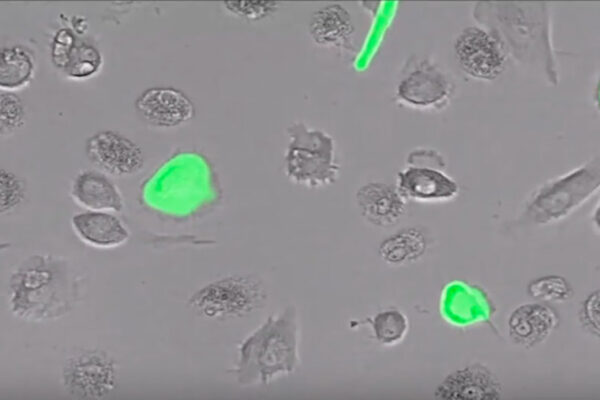Of the nine treatments and preventives for COVID-19 authorized for emergency use by the Food and Drug Administration, three are drugs made from so-called monoclonal antibodies. Such drugs provide patients with ready-made antibodies that neutralize the virus, bypassing the body’s slower and sometimes less effective process of making its own antibodies.
But such therapies were developed without detailed information about how antibodies interact with the rest of the immune system during COVID-19. Faced with a new, deadly and fast-spreading disease, drug designers started work without knowing whether antibodies’ ability to activate a variety of immune cells would aid or hinder efforts to control the disease. Such abilities are collectively known as antibody effector functions.
A new study from researchers at Washington University School of Medicine in St. Louis has shown that antibody effector functions are a crucial part of effectively treating infections with SARS-CoV-2 — the virus that causes COVID-19 — but are dispensable when the antibodies are used to prevent infection. The findings, available online in the journal Cell, could help scientists improve the next generation of antibody-based COVID-19 drugs.
“Some of the companies removed the effector functions from their antibodies, and other companies are trying to optimize the effector functions,” said senior author Michael S. Diamond, MD, PhD, the Herbert S. Gasser Professor of Medicine. “Neither of these strategies is backed by data in the context of SARS-CoV-2 infections. Based on our findings, if you have a potently neutralizing antibody without effector functions and you give it before infection, as a preventive, it will probably work. But if you give it after infection, it won’t work well; you need to optimize effector functions to get maximal benefit.”
Antibodies are shaped like the letter Y. The tips of the two short arms are almost infinitely changeable, giving antibodies the ability to recognize virtually any molecular shape. The short arms attach to foreign molecules and target them for clearance. The long arm is where the effector functions are located. It attaches to receptors on immune cells, inducing them to kill infected cells and release molecules that sculpt the immune response.
But this process can go wrong. In a process known as antibody-dependent enhancement, interactions between the long arm of antibodies and immune cells can worsen some viral infections, notably infections with the tropical dengue virus. People who have antibodies against one strain of dengue virus are at risk of developing life-threatening dengue fever if they become infected with another strain of the virus.
To avoid the danger of antibody-dependent enhancement, some companies developing antibody-based COVID-19 drugs changed the sequence in the long arm of the antibodies to prevent it from interacting with immune cells. Other companies took the opposite tack: strengthening antibody effector functions to potentially boost the potency of their drugs.
To determine the role of antibody effector functions in COVID-19, Diamond and colleagues, including first author Emma Winkler, an MD/PhD student in Diamond’s lab, and co-senior author James E. Crowe Jr., MD, of Vanderbilt University Medical Center, started with an antibody that is very effective at recognizing and neutralizing SARS-CoV-2. They eliminated the antibody’s effector functions by mutating its long arm so that it could not stimulate immune cells.
The researchers gave separate groups of mice the original or the mutated SARS-CoV-2 antibodies, or a placebo antibody that does not recognize SARS-CoV-2. The antibodies were given to the animals one day before they were infected through the nose with the virus that causes COVID-19. Regardless of whether the effector functions of the antibodies were intact, the SARS-CoV-2 antibodies protected the mice against disease. Mice that had received either of the SARS-CoV-2 antibodies lost less weight and had lower levels of virus in their lungs than the ones that received the placebo antibody. Importantly, there was no sign of antibody-dependent enhancement of disease.
Then, the researchers investigated whether antibody effector functions are needed for treatment after infection. They gave mice the virus that causes COVID-19 and treated them one, two or three days later with the original or mutated SARS-CoV-2 antibodies, or a placebo antibody. Compared to the placebo, the original SARS-CoV-2 antibody protected mice against weight loss and death, but the one without effector functions did not.
Further experiments with different antibodies with and without effector functions, and in a different animal — hamsters — yielded the same result: Effector functions are an indispensable part of effective antibody treatment for COVID-19.
Some antibody-based drugs for COVID-19 are being developed as preventives for use in high-risk environments such as nursing homes. But most such drugs are geared toward treating people who are already infected. For that purpose, optimizing antibody effector functions could be the key to making a powerful drug, Diamond said. As part of this study, the researchers discovered that the loss of effector functions changed the kinds of immune cells that were recruited to fight the infection and how they behaved.
“’Effector functions’ refers to a complex set of interactions between antibodies and other elements of the immune system,” said Diamond, who also is professor of molecular microbiology and of pathology and immunology. “You can introduce different point mutations to augment certain kinds of effector functions, and some might be harmful to the immune response while others might be beneficial. There’s a lot of nuance. We are still learning how to harness effector functions so you get what you want but not what you don’t want.”
Winkler ES, Gilchuk P, Yu J, Bailey AL, Chen RE, Chong Z, Zost SJ, Jang H, Huang Y, Allen JD, Case JB, Sutton RE, Carnahan RH, Darling TL, Boon ACM, Mack M, Head RD, Ross TM, Crowe JE, Diamond MS. Human neutralizing antibodies against SARS-CoV-2 require intact Fc effector functions for optimal therapeutic protection. Cell. Feb. 12, 2021. DOI: 10.1016/j.cell.2021.02.026
This study was supported by the National Institutes of Health (NIH), contract numbers 75N93019C00062 and 75N93019C00074 and grant numbers R01 AI157155, U01 AI15181 and F30 AI152327-01; the Defense Advanced Research Project Agency, grant number HR001117S0019; Fast Grants from the Mercatus Center, George Mason University; the Dolly Parton COVID-19 Research Fund; the Future Insight Prize; and a Helen Hay Whitney Foundation postdoctoral fellowship. This work also was funded by the University of Georgia and Washington University.
Washington University School of Medicine’s 1,500 faculty physicians also are the medical staff of Barnes-Jewish and St. Louis Children’s hospitals. The School of Medicine is a leader in medical research, teaching and patient care, ranking among the top 10 medical schools in the nation by U.S. News & World Report. Through its affiliations with Barnes-Jewish and St. Louis Children’s hospitals, the School of Medicine is linked to BJC HealthCare.



